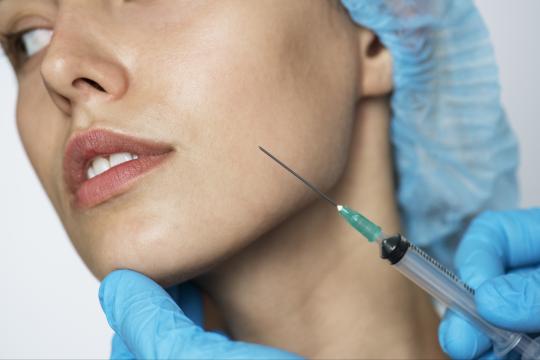
From ancient Greece to Egypt, Europe to the Far East, our ancestors have a vast history of traveling to some mineral hot spring or another in search of healing and greater vitality. Centuries later, not much has changed—except now the act of traveling to seek out medicinal benefit is called “medical tourism” and it’s a booming business—$439 billion dollars per year according to recent numbers. And while today’s industry is more likely to attract those seeking surgeries or medical procedures than those seeking a simple spa treatment, the principle is the same.
The truth is, no one country has a lock on excellent cosmetic surgeons. This likely accounts for the 1.4 million Americans who sought overseas health care in 2017—a good chunk of them seeking out cosmetic surgery. And while you’re probably not of the mindset that medical tourism is all safaris and poolside cabanas, let us hammer home that choosing to have plastic surgery abroad is no simple task. It will require even more research than choosing to have surgery here in the U.S. Not only will you need to answer the same questions you would ask with any cosmetic procedure here, you’ll also need to dig deep into details like:
- How do I choose a qualified plastic surgeon overseas?
- What is my total cost?
- Where will my surgery take place?
- What regulations and laws apply in the country I’m having surgery in?
- What are the risks associated with my travel plans?
- What will my pre- and post-operative care be like?
And unless you’re bilingual, all of this research will likely be coupled with a language barrier—yay! So before you book your flight, we’re going to spend the next 1000+ words pounding out a 2-part guideline to help you decide if cosmetic surgery abroad is right for you. And we’re going to start with a biggie: choosing the right overseas surgeon.
Choosing an overseas surgeon.
Vetting your plastic surgeon is the key to choosing a qualified, ethical and experienced professional who can deliver safe and successful results. Easy, right? No. Particularly if you’ve perused the tabloids and read about the unfortunate patients who chose an unvetted “doctor” and wound up with botched results, major health concerns, some have even died. Like most professions, there are some bad apples out there folks, and there are some ill-trained apples, and some apples aren’t even apple (aka. doctors) at all. So how does one get on with the business of vetting an overseas plastic surgeon? Some of the important questions you’ll need to have answered are:
Is your surgeon appropriately trained and experienced?
Your doctor should have specific training in cosmetic surgery procedures through an accredited plastic surgery residency program and/or fellowship. Make a list of the specialty certifications that the surgeon holds and make sure they meet the same standard as a surgeon in the United States would. Is your surgeon a member of The International Society for Aesthetic Plastic Surgery If not, www.isaps.org is a good source for finding qualified and experienced cosmetic surgeons.
Do you feel comfortable with your surgeon and his or her abilities?
It’s vital that you feel confident in your surgeon’s qualifications and abilities. If the answer to this is anything other than 100% yes, you may need to ask even more questions. And should those questions still not get you to 100%? That’s when you choose another surgeon.
Do you feel like you’ve been able to fully communicate your goals and medical history to your surgeon?
Establishing trust and solid communication with your plastic surgeon is more vital than ever if you’re considering having your procedure overseas. You must meet with your surgeon in person prior to making this decision to establish a rapport, discuss your procedure and goals and clearly communicate your medical history. If you’re looking to save a buck or some time by not booking a prior visit for an in-person meeting, you are likely not a good candidate for an overseas procedure. Do not pass go.
Is the site of your surgery a fully licensed and modern facility?
In the same breath, you can research until you’re blue in the face (and you should), but the only way to ascertain the professionalism of the surgical facility in which your procedure will take place is to visit the facility in person. Having full confidence in your surgical facility should take equal precedence to having full confidence in your surgeon.
Does the key staff at the surgeon’s office and at the surgical facility speak fluent English?
One obstacle that will need to be overcome is any language barrier. It’s imperative that your surgeon and the surgical facility have someone available to help with any issues pertaining to translation and communication. Seriously, you’re going to need more than a smile and a thumbs up sign.
Do you have a plastic surgeon at home ready to step in if complications occur?
The Aesthetic Society suggests finding a local board-certified plastic surgeon who is familiar with your procedure and goals who can help should complications arise upon your return home.
We'll give you some time to digest all of that, and then next week we'll throw some more considerations at you. You know... cost, location and travel risks. What?! Yes. We'll see you next Friday.





